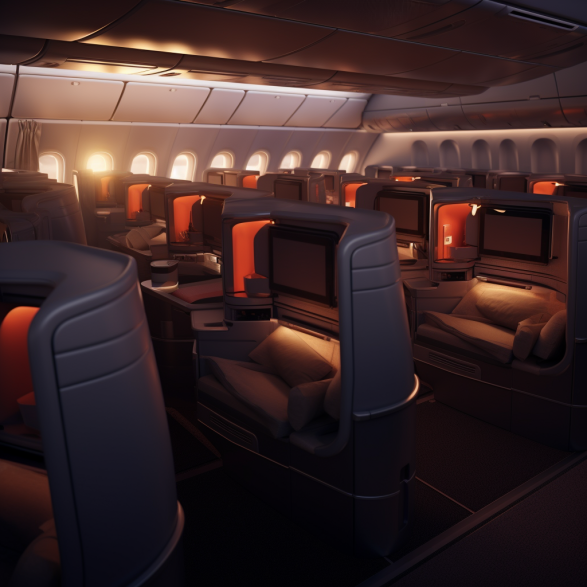Overview of innovative trends
Business class flight deals are now heavily influenced by the latest developments in Midsize. Laboratory innovations are revolutionizing passenger travel using a range of cutting-edge technologies. This not only improves flight comfort and safety, but also makes travel more environmentally friendly and efficient.
Key developments include improved air filtration systems and intelligent cabin controls. These technologies provide a microclimate and an individual approach to each passenger. Such innovations not only raise the standard of comfort in business class, but also open up new perspectives in the field of customer service.
Technological breakthroughs in laboratories
Research laboratories play a key role in disruptive technologies that transform business class flight offerings. They are developing new materials and systems that can dramatically improve the long-distance travel experience. These innovations include improved seat materials that provide better support and comfort, as well as climate control systems to create an optimal cabin environment.
Emphasis is also placed on the development of advanced entertainment systems. The labs are working to create more intuitive and interactive interfaces that offer passengers a rich selection of media content. In addition to this, researchers are focusing on developing more efficient and environmentally friendly flight technologies, that not only improve the user experience, but also reduce the environmental impact.
Economic Impact
Innovations in business class travel have significant economic implications for both airlines and passengers. Improving quality and comfort attracts more customers who are willing to pay for a high level of service. This increases airlines ‘ revenues, allowing them to invest even more in innovative technologies and services.
On the other hand, investing in new technologies requires significant costs. The development of advanced materials, advanced entertainment systems, and energy-efficient solutions implies an initial investment that can affect ticket pricing. However, the long-term outlook for such investments promises lower operating costs and business sustainability.
In addition, improved business class offerings encourage competition between airlines. This leads to the development of more cost-effective and efficient solutions that can provide airlines with a competitive advantage. This dynamic contributes to the emergence of more affordable options for passengers and an improvement in the overall quality of aviation services.
The future of business class travel
Business class flights continue to evolve, offering more and more advanced technologies and comfort levels. Here are the key aspects that will determine their future:
- 1. AI Integration: Apply AI to personalize the passenger experience, including automatic adjustment of seats, lighting, and entertainment systems.
- 2. Improved communication capabilities: The development of communication technologies will provide passengers with uninterrupted Internet access at high speeds, even in flight.
- 3. Application of virtual and augmented reality: Introducing VR and AR for entertainment systems and providing new ways to work and relax during the flight.
- 4. Environmental approach: Development and use of greener fuels and materials to reduce the environmental impact of air travel.
- 5. Improved safety technologies: Introduce new technologies to improve flight safety and comfort, including improved passenger health monitoring systems.
- 6. Hybrid and electric aircraft: Research and development of hybrid and all-electric aircraft to reduce emissions and noise.
Questions and answers
Answer: Self-healing materials in air travel are innovative materials that can automatically repair minor damage or cracks. This increases the durability of the aircraft’s interior and reduces maintenance costs.
Answer: Nanotechnology is used to enhance the properties of materials used in business class, such as strength, lightness, and thermal insulation. This allows you to create more comfortable and functional cabins.
Answer: The economic effect is to increase airline revenues by attracting more passengers who are willing to pay for a high level of comfort and service, as well as reduce operating costs due to efficient technologies.
Answer: In the future, business class flights can be transformed by AI to personalize the passenger experience, use VR and AR for entertainment, develop environmental technologies, and introduce hybrid or electric aircraft.
Answer: Integrating artificial intelligence in business class involves using AI to tailor the passenger experience, such as automatically adjusting seats, lighting, and entertainment systems, to suit individual passenger preferences and needs.

